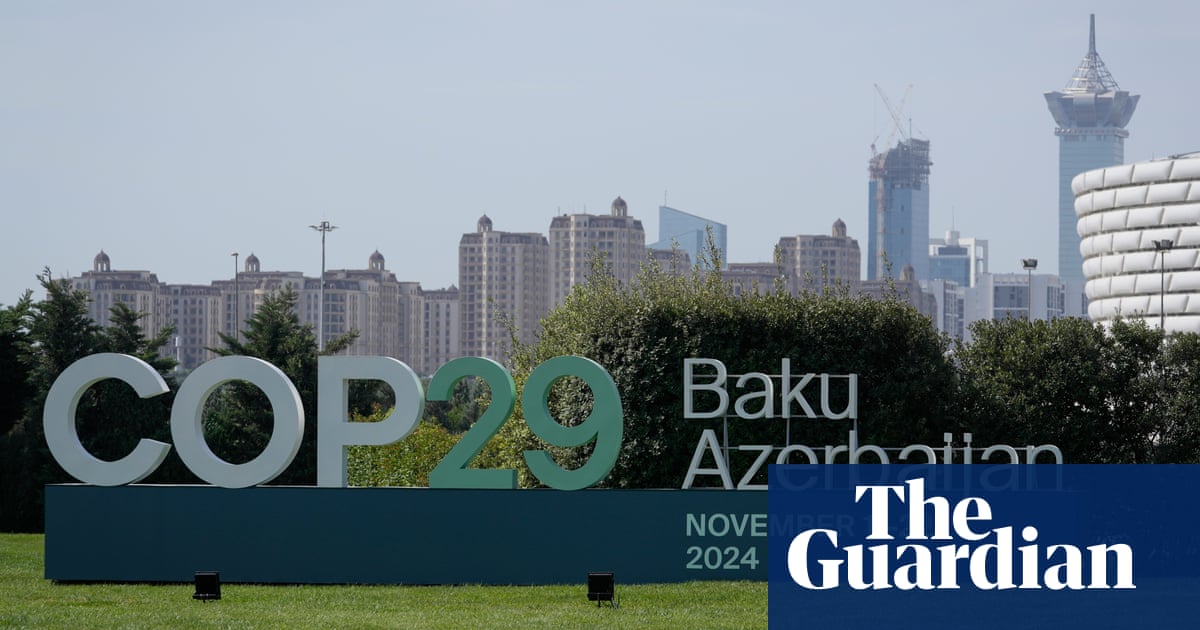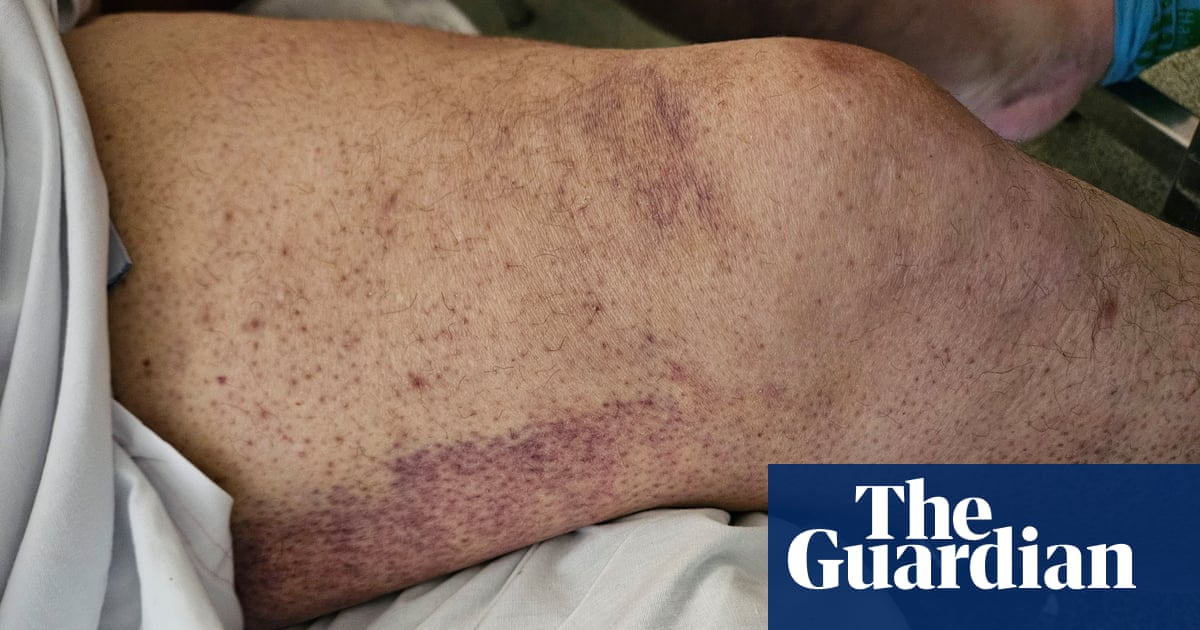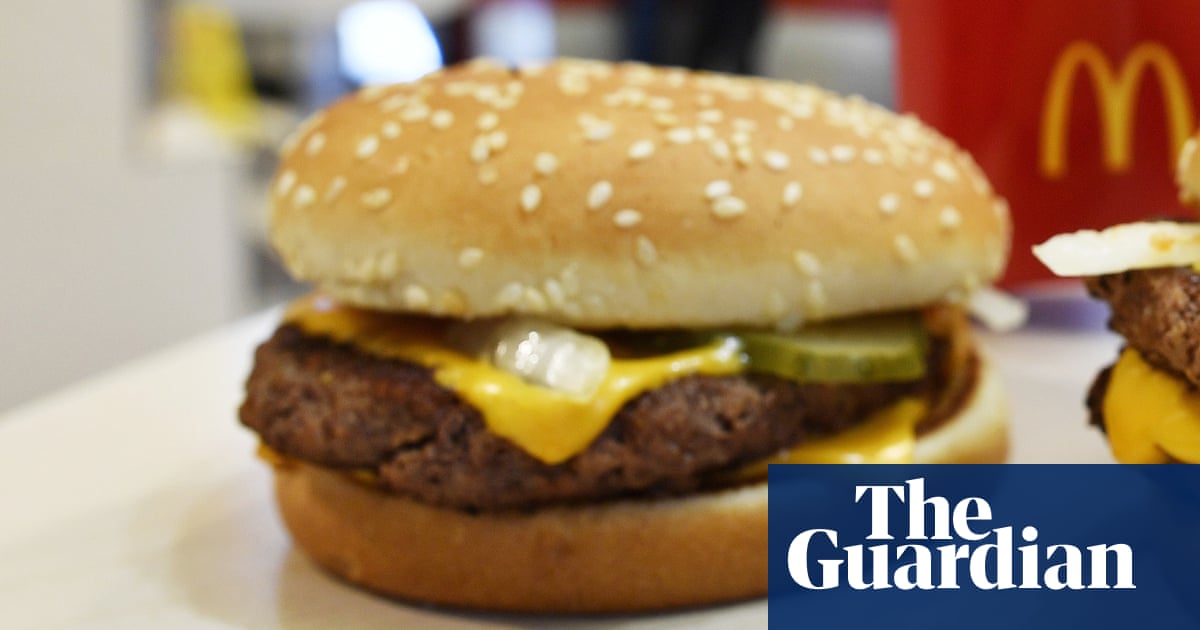On a misty winter morning, farmer Mohit Chutia sits on the ground outside his home rocking his grandson in his lap. He sings about the hoolock gibbons, the only ape species in India. High in the tree canopy above, the gibbons leap gracefully from branch to branch. Below, Chutia and his family watch.
It is a picture of the coexistence that has endured for generations between the endangered gibbons and villagers in Barekuri in Assam, in the remote east of the country.
“They are like my own children,” says Chutia. His close bond with the gibbons has prompted other villagers to call him bandar – monkey.
The hoolock gibbon is found only in a few places in the world and estimates of total numbers are uncertain. It was once thought India had about 12,000, but in 2017 experts revised this down to between 5,000 and 10,000.
In Barekuri, a tiny pocket of about 19 gibbons is left – and only four are females, placing the group at the edge of viable survival. Close up, the gibbons are a vision of tight, respectful coexistence with humans – but looming in the background are the wider threats of pollution, extractive industries and deforestation driven by human activity.
A new Guardian documentary – Guardians of the Gibbons – looks at how Chutia’s community has created an unusually close bond with their ape neighbours.
On the drive towards Chutia’s home, in a remaining patch of jungle, the vast and famous tea estates of Assam stretch out across the horizon on both sides of the road. Turning off the road for Barekuri, the landscape suddenly changes to thick forest and dense undergrowth.
The canopy used to be so thick that villagers would hear the hoolocks’ calls – a collection of whoops and hoots – but only caught glimpses of them. However, deforestation, mining for oil and gas, expansion of villages and roads, and the growth of monoculture crops such as tea have all fragmented the forest cover.
“For the gibbons, who are almost totally arboreal, it means they are cut off from areas of the forest, unable to cross the open areas created by the road and rail line. Their access to the fruit they depend on has been reduced,” says Ragini Nath, who made the documentary with fellow film-maker Chinmoy Sonowal.
Inside his brick-and-bamboo home, Chutia talks about his favourite gibbon, Twik, who nearly died from electrocution from a low-hanging wire. Within minutes of Chutia calling, Twik emerges from the tree canopy, his mother watching protectively from a few feet away.
It is not clear yet whether Twik is female – hoolock gibbons take years to develop the golden brown fur that marks a female of the species. If Twik is female, her ability to grow the species’ numbers could help this small population survive.
The tree canopy looks lush and thick but Chutia says there are not enough fruit trees. “The day I saw them eating leaves years ago, I realised they weren’t getting enough fruit. If they had had enough fruit, they would never have taken the bananas I offered them,” he says.
The story of humans and gibbons is not only one of peaceful coexistence, but also looming threats. As you drive through the forest, oil and gas rigs loom into view, flares burning.
The extraction business is booming in this region. Assam is a leading oil and gas producer: the state accounts for 14% of India’s crude oil production and 10% of its fossil gas. The state government estimates that 1.3bn tonnes of crude oil lies under the ground, more than half of which is unexplored.
Chutia has vivid memories of 2020, when a gas blow-out just over a mile away caused a fire that raged for months. It led to the deaths of three people and almost 26,000 animals, including two gibbons. “It felt like we were breathing oil,” says Chutia.
Ishika Ramakrishna, a researcher from Bengaluru who is studying gibbons for her doctorate at the Centre for Wildlife Studies, says: “It’s not just the trees that are felled for the mining but the fact that roads have to be widened to allow for large vehicles. Any disruption to the canopy, even minor, can severely affect the gibbons’ movement and survival.”
In a recent radio broadcast, prime minister Narendra Modi praised Barekuri’s coexistence with its hoolock gibbon population, which he said had “made their home in this village”. But the Assam state government, ruled by Modi’s Bharatiya Janata party, is considering a new oil and gas exploration project in Hollongapar gibbon sanctuary in Jorhat, just 110 miles from Barekuri.
To preserve the remaining gibbons, Ramakrishna wants the Assam government to stop all further mining activity in and around Barekuri, start planting trees to restore habitat and food resources, and explore “canopy bridges” as a solution to the breaks in the tree canopy.
At present, gibbons are either unable to cross wide open areas to reach another section of forest – or they do so using electrical lines, which can result in electric shocks, some of which are fatal.
“What we’re trying to do is consult the villagers to see what design would work best for the bridges, which would be made of bamboo. It would compensate for the break in canopy cover and allow the gibbons more access to the fruits they need to survive,” says Ramakrishna.










